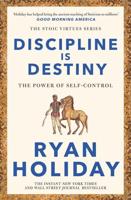Publisher's Synopsis
Three Dialogues between Hylas and Philonous In Opposition to Sceptics and Atheists George Berkeley Three Dialogues between Hylas and Philonous is a book written by George Berkeley in 1713. Three important concepts discussed in the Three Dialogues are perceptual relativity, the conceivability/master argument ("master argument" was coined by Andre Gallois), and Berkeley's phenomenalism. Perceptual relativity argues that the same object can appear to have different characteristics (e.g. shape) depending on the observer's perspective. Since objective features of objects cannot change without an inherent change in the object itself, shape must not be an objective feature. Berkeley uses Hylas as his primary contemporary philosophical adversary. In the Dialogues, the name Hylas is derived from an ancient Greek word for "matter," which Hylas argues for in the dialogue. Using Philonous, Berkeley argues his own metaphysical views, which were first developed in his earlier book A Treatise Concerning the Principles of Human Knowledge. Philonous translates as "lover of mind." In The First Dialogue, Hylas expresses his disdain for skepticism, adding that he has heard Philonous to have "maintained the most extravagant opinion... namely, that there is no such thing as material substance in the world." Philonous argues that it is actually Hylas who is the skeptic and that he can prove it. Thus, a philosophical battle of wit begins."












